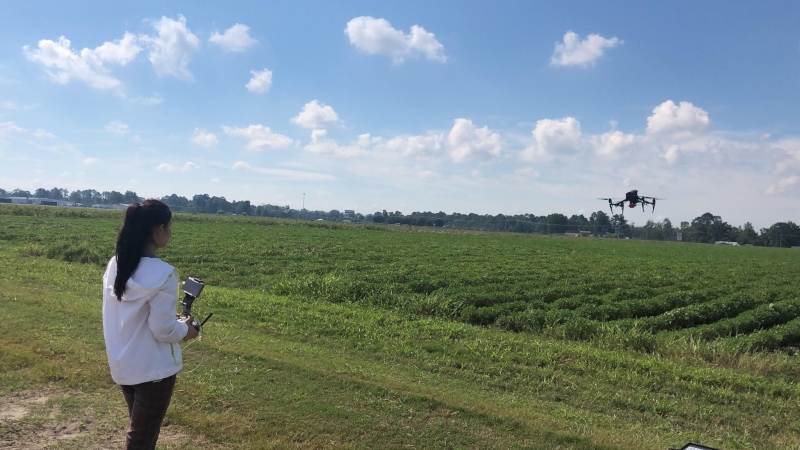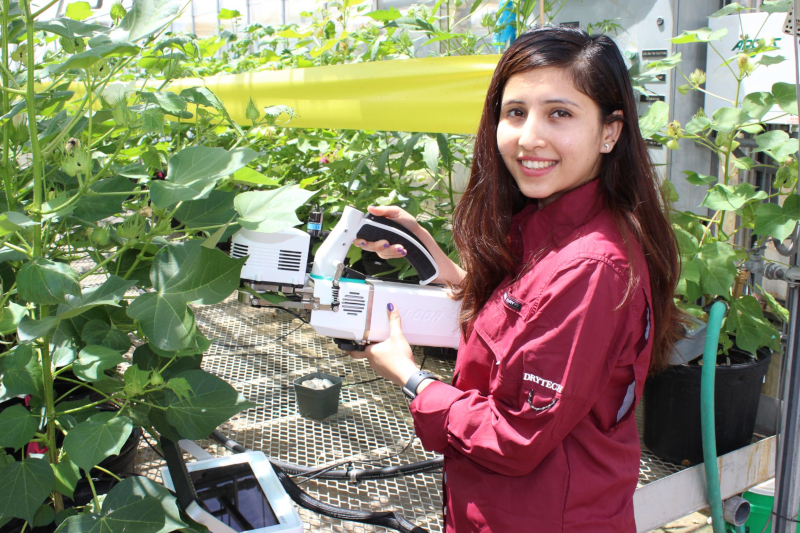Sujata Bogati
My name is Sujata Bogati, and I work with Dr. Diane R. Wang at the Department of Agronomy as a PhD student. My research uses crop models and remote sensing to understand the interaction between genotype and environment. The goal of the Ph.D. research is to improve prediction under new conditions by creating a physiological process-based model for different soybean genotypes. Through modeling, we will develop an understanding of the underlying processes and investigate the relationship between environmental and genetic factors. Ultimately, this will assist growers and breeders in selecting a crop that is most suited for the region and has the best performance. In the long term, we anticipate that this will improve crop diversity in our food systems and resolve global food security concerns.

In addition, in collaboration with Dr. Jinha Jung's group from Civil engineering, we are also using remote sensing to improve measurement frequency significantly. This kind of research is crucial in agriculture to better understand the dynamics of a particular crop and ensure the crop will yield sufficient food to meet the growing demand. Aside from that, we have also been focusing on root phenotyping lately because it is crucial to comprehend both the upper and belowground portions, and not much study has been done in this field.
Simultaneously, my role as a TA and lab instructor for the Data Science for Agriculture (AGR 333) class at Purdue has been exciting. Teaching students to use R-studio for data analysis across various agricultural disciplines while emphasizing data ethics and management has been rewarding and mutually beneficial.

As an FFAR (Foundation for Food and Agriculture Research) Fellow from 2022 to 2025, I've had the opportunity to participate in several programs that have significantly enhanced my personal and professional growth through skill development and mentorship. Through this program, I also had an opportunity to visit Capitol Hill to advocate for agricultural research, which was an amazing opportunity.
Dr. Erickson and the team have greatly enhanced my teaching skills, ensuring I can effectively engage students and facilitate their learning experience. In addition, I am very grateful to Dr. Rebecca Dunnings, and all my mentors for the invaluable professional development workshops/mentorships. I have also been very fortunate to get help from my committee members, lab mates, collaborators, visiting scholars, and dedicated undergraduate students to collect the data for our experiment.
I owe much of my academic and professional enrichment to my advisor, Dr. Diane R. Wang, and the support provided by Purdue University.
